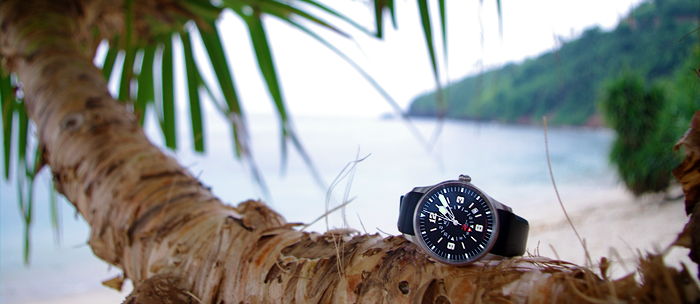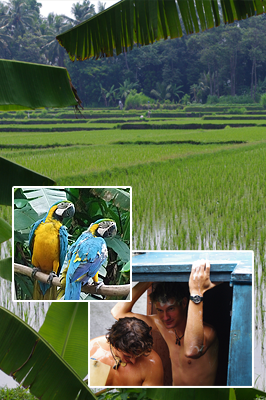Across its many islands, Indonesia has developed a shared identity defined by a national language and ethnic diversity. The name Indonesia derives from the Latin "Indus", and the Greek "nesos", meaning "island". Despite its large population and densely populated regions, Indonesia has vast areas of wilderness . The country is richly endowed with natural resources, yet poverty remains widespread in contemporary Indonesia. Indonesia shares maritime borders across narrow straits with Singapore, Malaysia, and the Philippines to the north, and with Australia to the south. The capital, Jakarta, is on Java and is the nation's largest city, followed by Surabaya, Bandung, Medan, and Semarang.
Upon arrival and disembarking from the plane, you'll immediately notice the sudden rush of warm, wet air. Indonesia is a warm place. It has no spring, summer, fall, or winter, just two seasons: rainy and dry, both of which are relative (it still rains during the dry season, it just rains less). While there is significant regional variation, in most of the country (including Java and Bali) the dry season is April to October, while the wet season is November to March.
The volcanoes in Indonesia are among the most active of the Pacific Ring of Fire. They are formed due to subduction zones of three main active tectonic plates. Some of the volcanoes are notable for their eruptions, for instance, Krakatau for its global effects in 1883. The name Krakatau is used for the island group, the main Island , and the volcano as a whole. The island exploded in 1883, killing approximately 40,000 people, although some estimates put the death toll much higher. The explosion is still considered to be the loudest sound ever heard in modern history, with reports of it being heard nearly 3,000 miles (4,800 km) from its point of origin. The shock wave from the explosion was recorded around the globe.
Native to Indonesia and Malaysia, orangutans are currently found only in rainforests on the islands of Borneo and Sumatra. There are only two surviving species, both of which are endangered. Orangutans have a large, bulky body, a thick neck, very long, strong arms, short, bowed legs, and no tail. They are mostly covered with long reddish-brown hair, although this differs between the species: Sumatran Orangutans have a more sparse and lighter coloured coat. A number of organisations are working for the rescue, rehabilitation and reintroduction of orangutans. The largest of these is the Borneo Orangutan Survival Foundation. Other major conservation centres in Indonesia include those at Tanjung Puting National Park and Sebangau National Park in Central Kalimantan.
Amidst the powerful Volcanoes , the beauty of the Organgutans, and the warm climate of Indonesia , the RGM "North Pointer" felt right at home. Its time to step out of the jungle and head south of the Persian Gulf on the Arabian Peninsula , next to Dubai.





